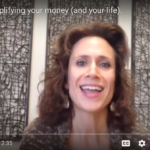 I wanted to share some additional thoughts to my previous post on my work with couples and money.
I wanted to share some additional thoughts to my previous post on my work with couples and money.
While happily married couples are generally compatible, they have some dynamic differences between them as well. This often comes out in their money relationship and can be quite wonderful to explore. The key is to be able to talk about money and share a vision for your life.
Sometimes one person has been managing the money for years and they want to shift to feeling more equal around the financial decision making. They want to be able to explore what is and isn’t working around their money, and feel like they are on the same page about both their present and their future.
Couples sometimes have fairly different backgrounds around money and different “money personalities”. This is not a bad thing- in fact, it is very common. (Besides, it’s not very sexy to marry your clone- of course you have differences!) “Savers” often marry “spenders” (in a very simplistic sense) and couples often want to transcend this, as it tends to not work for either person. Likewise, “money worriers” often marry “money avoiders”, and eventually this doesn’t work for either person, but they don’t know what to do.
And often one person is more detailed oriented while the other is a bit more “big picture” oriented, though of course everyone needs both of these abilities.
Money coaching helps you explore your differences and utilize your individual strengths around money, while shoring up your weaknesses. There is a sense of being a team and money coaching facilities this. This work is about exploring how to balance your present needs, wants, income and expenses, while making sure you avoid debt you don’t want, you build savings that makes you feel great, and you have a way to talk about money and make financial decisions. It is about how to create a life you both really love, as well as a future you look forward to.
(see previous post on Couples money coaching – becoming the dream team you knew you could be)


 I have worked with couples on their relationship to money for over twenty years. It’s transformative work for them.
I have worked with couples on their relationship to money for over twenty years. It’s transformative work for them.
 It was 20 years ago that I started my own journey of Financial Recovery.
It was 20 years ago that I started my own journey of Financial Recovery.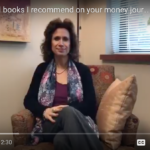

 I’m often asked for book recommendations to read as part of your money journey. So below are three wonderful books that get to the heart of your relationship with money. They are not just about the practical side of money, with advice on debt and savings, but rather, they all go much deeper into the emotional and spiritual sides of money. All three of these women are trusted colleagues of mine. I’m quoted in Karen’s book, I’ve been cited in various books by Barbara (and even contributed to one of her anthologies) and Bari has had me both teach for her and has interviewed me. I say this not to brag, but to let you know how well I know and trust their work. These books cover everything from how you were raised with money and your “money story”, to getting to the root of overspending and underearning. They are each an odyssey of personal growth and will move you forward.
I’m often asked for book recommendations to read as part of your money journey. So below are three wonderful books that get to the heart of your relationship with money. They are not just about the practical side of money, with advice on debt and savings, but rather, they all go much deeper into the emotional and spiritual sides of money. All three of these women are trusted colleagues of mine. I’m quoted in Karen’s book, I’ve been cited in various books by Barbara (and even contributed to one of her anthologies) and Bari has had me both teach for her and has interviewed me. I say this not to brag, but to let you know how well I know and trust their work. These books cover everything from how you were raised with money and your “money story”, to getting to the root of overspending and underearning. They are each an odyssey of personal growth and will move you forward.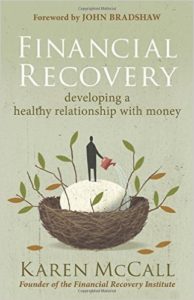
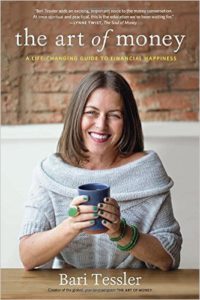
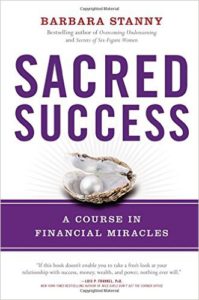

 It’s a bright shiny New Year, and I bet you’ve heard many versions of “New Year, New You.” So—is this year the year to shift your relationship with money? Here are three steps to contemplate, so you decide if this is the year to make the shift.
It’s a bright shiny New Year, and I bet you’ve heard many versions of “New Year, New You.” So—is this year the year to shift your relationship with money? Here are three steps to contemplate, so you decide if this is the year to make the shift.

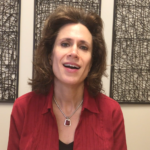

 As a money coach, I ask new clients about their relationship to food.
As a money coach, I ask new clients about their relationship to food.